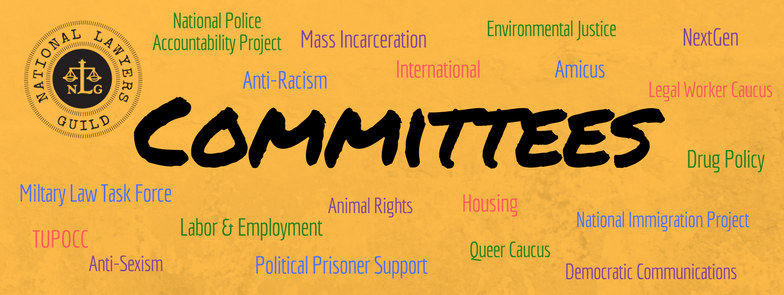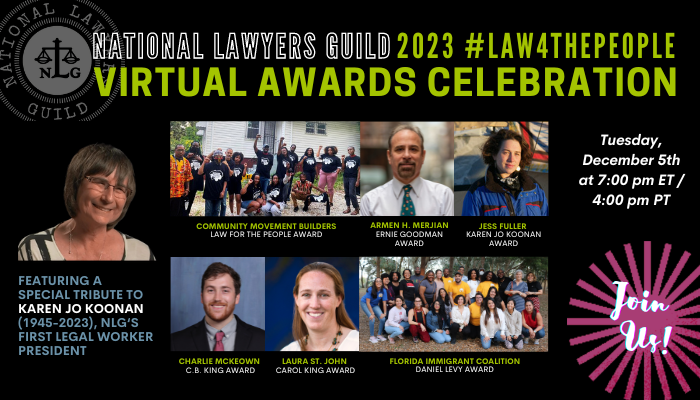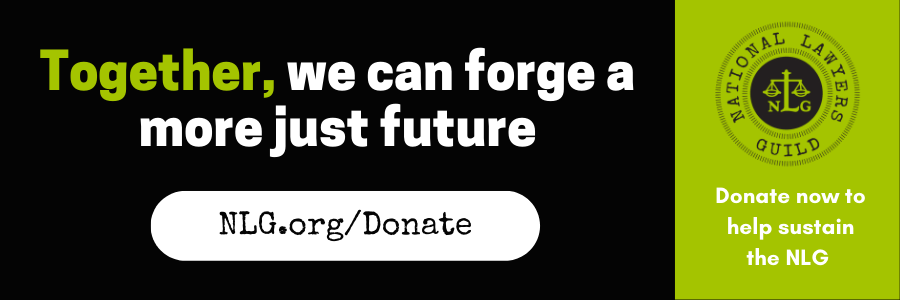
Below is a list of current national committees. The national committees of the Guild are formed by members who wish to organize around a specific issue. The main communication tool of a committee is an email list which all committee members can interact on. (When you join a committee you'll be invited to join the email list and will be required to confirm your subscription.) The email lists can be used to share resources around the issue at hand and to reach out for help from others who have more experience in that field. They also can be used to organize work that a committee can take on, like hosting a webinar through the Guild, writing an article for Guild Notes, or putting together a workshop for our annual convention or a regional conference. Though some committees may be more structured and/or have a designated chairperson, others will rely more on members to take initiative in helping develop the goals of the committee. If you have any questions about a particular committee, please email membership@nlg.org. If you're already a member and would like to join a committee, you can do so here.
In addition to regular committees, the Guild also has two projects which are separate organizations from the Guild but still a part of the Guild. These are:
The National Police Accountability Project: In 1999, NPAP was created as a non-profit to protect the human and civil rights of individuals in their encounters with law enforcement and detention facility personnel. The central mission of NPAP is to promote the accountability of law enforcement officers and their employers for violations of the Constitution and the laws of the United States. With over 500 members and growing, they continue to effect change in the flawed legal system and fight to put an end to police brutality of all forms. NPAP does not provide legal representation to victims of law enforcement misconduct. Go here to join and learn more!
National Immigration Project: For 49 years, the National Immigration Project (NIP) has persistently promoted justice and equality of treatment in all areas of immigration law, the criminal justice system, and policies related to immigration. They provide technical assistance and support to legal practitioners, immigrant communities, community-based organizations, and all advocates seeking and working to advance the rights of non-citizens. Since its founding, the NIP has served as a progressive source for cutting-edge, advocacy-oriented legal support on issues critical to immigrant rights. Their success is built upon the membership and tax-deductible contributions of thousands of supporters nationwide. Go here to join and learn more!
The Animal Liberation Committee is a network of lawyers, legal workers, and law students endeavoring to dismantle all systems of domination and oppression by empowering political activists, protesters and movements for social change dedicated to total liberation.
The Anti-Racism Committee (ARC) strives to make the Guild into an effective anti-racist organization, holding it to the principles on which it was founded. The cost of joining the Anti-Racism Committee is $12, which can be paid alongside your membership dues. (Dues generally go towards covering expenses for the two anti-oppression trainings we organize - one for the NEC in April and one for the convention, as well as to the TUPOCC travel stipend.) Are you doing anti-racism work in your local or student chapter? Looking for assistance, resources, or ideas? Email the ARC Co-Chairs at antiracism@nlg.org
White supremacy and racism are serious problems in our society that affect us all. Racism affects how we do our work, and how we interact with each other, potential allies, and power structures. ARC desires to be a resource for NLG chapters, committees, and projects to engage in analysis and action on anti-racism.
The following documents may be used as tools to facilitate conversations in your NLG chapter, committee, or project. The ARC can make available ARC committee members to help guide and facilitate such conversations, remotely, or in person at a meeting.
Anti-Racism Resources:
- Culture Shifts toward Anti-Racist Organizational Culture from the Catalyst Project
- Culture as an Iceberg from the Brown Boi Project
- Pledge to support the mission of The United People of Color Caucus of the NLG (TUPOCC)
The Disability Justice Committee works to transform systems that privilege some types of body-minds over others. We bring disability perspective to social justice work. We support leadership of queer women, trans people, and people of color with disabilities. The DJC is also a way for lawyers, legal workers, and prisoners living with all kinds of disabilities to support each other. Their contact is djc@nlg.org
See the Disability Resources list created by the committee!
The EJC is a forum to discuss anything and all the work our members do around protecting the rights of individuals and movements to defend the environment.
The Guild has provided legal support for environmental and animal rights movements for decades. When the FBI began investigating these activists in the late 1990s, the NLG provided lawyers, created the Know Your Rights resource Operation Backfire, and set up a national Green Scare hotline. Our legal support for environmental activism continued through the many years of resistance to the Keystone XL pipeline, as well as from the earliest days of the #NoDAPL demonstrations at Standing Rock. Guild members traveled to North Dakota to assist Water Protectors and Indigenous legal workers, eventually forming the Water Protector Legal Collective. NLG members have also been actively involved in the resistance to oil and gas pipelines across the country, including Louisiana, Minnesota, North Dakota, Virginia, West Virginia, and Pennsylvania.
The Guild is a member of Protect the Protest, a coalition of environmental and legal organizations dedicated to challenging the repressive tactics used against environmental movements, specifically Strategic Lawsuits Against Public Participation (SLAPPs). We have analyzed the legal trends in environmental struggles, both those that repress these movements and the strategies used by movements to address climate change.
The Housing Committee works to advance the principle that housing is a human right. The committee supports the efforts of communities advocating for and creating access to safe, affordable, and adequate housing for all people. The committee aims to provide legal support to grassroots movements organizing around self-determination, tenants' rights, foreclosure resistance, squatting/homesteading, homelessness rights, property redistribution, and other housing and land use issues.
The Indigenous Peoples' Rights Committee is a sub-committee of the International Committee that works on issues of urgency and interest for Indigenous peoples and nations inside and outside the land of the United States. It works closely with the Environmental Human Rights Committee on issues of the rights of the earth and extractive industries in indigenous land, and with Indigenous movements internationally.
The NLG International Committee (IC) supports legal work around the world "to the end that human rights shall be regarded as more sacred than property interests." As lawyers, law students, and legal activists, we seek to change U.S. foreign policy that threatens, rather than engages, or is based on a model of domination rather than respect. The Guild provides assistance and solidarity to movements in the United States and abroad that work for social justice in this increasingly interconnected world.
The NLG IC plays an active role in international conferences, delegations and on-going projects that examine and seek to remedy conditions caused by illegal U.S. or corporate pracitices. By bringing an alternative perspective to multinational institutions, schools, community centers and congressional hearings, the IC and its members actively educate, litigate, and truth-seek toward the end of social justice.
This committee has done work in Cuba, the Middle East, Korea, Haiti, and several other countries. Through participating in these projects members can build their skills and network. The cost of joining the International Committee is $50 ($25 for students). Below are the subcommittees of the IC—visit the International Committee website at nlginternational.org, and follow them at facebook.com/NLGIC and @NLGIC to learn more.
- Task Force on the Americas - Addresses broadly questions of the US role in Latin America and throughout the hemisphere. Solidarity work with Venezuela, Bolivia, El Salvador, Honduras, Colombia, Brazil, Ecuador, Nicaragua, Mexico and more. Works closely with the Cuba Subcommittee, Haiti Subcommittee and Puerto Rico Subcommittee. Organizes numerous delegations, actions and events on a wide variety of prominent issues in the region.
- Palestine Subcommittee - The Palestine Subcommittee works on providing legal support to the movement for justice and freedom in Palestine. This includes working with Boycott, Divestment and Sanctions (BDS) movements, challenging repressive legislation, supporting students' and others right to organize and speak on Palestine, advocating for Palestinian political prisoners, organizing delegations, and challenging directly U.S. and Israeli violations of international law and Palestinian rights.
- Cuba Subcommittee - Works on challenging the US embargo on Cuba, defending travelers to Cuba from travel bans or fines, delegations to Cuba, and solidarity more broadly. Currently focusing on campaigning for the US to fulfill its commitments to normalize relations with Cuba. *note: dues required
- Indigenous Peoples' Rights Committee - The Indigenous Peoples' Rights Committee works on issues of urgency and interest for Indigenous peoples and nations inside and outside the land of the United States. It works closely with the Environmental Human Rights Committee on issues of the rights of the earth and extractive industries in indigenous land, and with Indigenous movements internationally.
- Africa Subcommittee - The Africa Subcommittee works to support people's movements in Africa and challenge U.S. military intervention and corporate exploitation in Africa. It connects with diverse movements and struggles in countries across Africa, and engages in UN and other international advocacy in connection with those movements.
- Haiti Subcommittee - Works on supporting people's movements in Haiti and holding the US and UN accountable for their negative and destructive roles in Haiti. Works closely with the Institute for Justice and Democracy in Haiti (IJDH) and BAI; organized recent delegation for election observation.
- Hawaiian Kingdom Subcommittee - Works to correct the misconception that Hawaiian Islands, and its political subdivision, the “State of Hawai‘i”, are part of US dominion. Rather, under International law, it is the territory of the independent State of the Hawaiian Kingdom. The subcommittee provides legal support for the de-occupation movement and directly challenges U.S. usurpation of Kingdom sovereignty.
- International Labor Justice Working Group - A joint working group with the Labor and Employment Committee, the ILJWG works on international issues in labor and coordinates closely with progressive labor lawyers in Canada and in Latin America.
- MENA (Middle East North Africa) Action Group - The MENA Action Group works on U.S. accountability in the region and in connection with social movements, labor unions and progressive organizations broadly within the region. It organizes delegations, panels and legal work around issues relating to Egypt, Tunisia, Turkey, Bahrain, Iraq and elsewhere in the region.
- Human Rights Framework Project - The Human Rights Framework Project works on "bringing human rights home," emphasizing U.S. accountability for violations of human rights within the United States. It also works on advocating for economic, social and cultural rights within the U.S. and internationally, and participates in shadow reporting and related processes on the U.S. human rights record.
- Agent Orange Working Group - This working group engages in advocacy, legislative and legal work for the victims of Agent Orange, in Vietnam and in the United States. It is currently focusing on legislation introduced that provides compensation for victims of Agent Orange both in Vietnam and in the U.S.
- Environmental Human Rights Committee - The EHRC uses the lens of human rights to focus on environmental issues, including climate change, extractive industries and the exploitation of indigenous peoples and lands. It has organized delegations to conferences and events on climate change, as well as producing CLEs on urgent environmental issues.
- Puerto Rico Subcommittee - The Puerto Rico Subcommittee works to challenge U.S. colonialism in Puerto Rico, support Puerto Rican movements, and hold the U.S. accountable for its actions in Puerto Rico. It works to free Puerto Rican political prisoners and support Puerto Rican decolonization from the US; it is currently involved in legal and political work around Vieques and for relief of Puerto Rico's odious debt, as well as the case of Oscar Lopez Rivera.
- Philippines Subcommittee - The Philippines Subcommittee works closely with people's movements and people's lawyers in the Philippines, challenging the role of the US in the Philippines, including struggling against US bases in the Philippines. Works on issues of political prisoners, peasants and workers struggles, indigenous struggles, and related concerns.
- Article 9 Working Group - The Article 9 Working Group works with Japanese progressive lawyers and the International Association of Democratic Lawyers to defend Article 9 (the "peace clause") in Japan's constitution against militarization.
Get involved with us today and be part of building a more peaceful and just world!
The Labor and Employment Committee is a non-profit unincorporated legal association engaged in legal education and advocacy. The membership of the Labor & Employment Committee includes lawyers, law students, legal workers, and worker representatives. It serves as a liaison between the Guild and legal organizations that represent organized labor and workers. The L&EC also works directly with organized labor and other organizations that represent workers. The cost of joining is $40. Students can join for $15. For more information visit the L&EC website at nlg-laboremploy-comm.org, as well as Facebook.
The Mass Defense Committee (MDC) is a network of lawyers, legal workers, and law students providing legal support for political activists, protesters and movements for social change. For more information on NLG mass defense work, visit our MDC web page, or email massdef@nlg.org.
The Mass Incarceration Committee exists in recognition that the use of incarceration in the United States has reached epidemic proportions and is the foremost civil rights, racial justice, and human rights concern of our times.
The NLG is committed to the dismantling and abolition of all aspects of systems and institutions that support, condone, create, fill, or protect prisons, including jails, police lock ups, juvenile detention facilities, immigration detention centers, involuntary psychiatric treatment centers, and other institutional settings in which people are held against their will. We are committed to supporting grassroots organizing efforts, policy initiatives, and litigation that promotes or moves toward abolition, including: the rights and organizing of prisoners, the de-funding and closure of prisons and redirection of prison and policing budgets into social and human services as well as re-entry support; legalization of drug use and sex work; release of prisoners serving life without parole and other inhumane sentences, decreased use of solitary confinement, and efforts to prevent construction of new prisons. We shared our analysis of abolition and strategies for decarceration in a webinar featuring Guild members.
The Guild has engaged in numerous initiatives to promote an end to mass incarceration nationally and locally. The NLG organizes an annual national Week Against Mass Incarceration (WAMI), supports political prisoners, and shares the voices of our jailhouse lawyer members in the Guild Notes column, “Beyond Bars: Voices from NLG Jailhouse Lawyers.” The Guild has critiqued the obstacles to legal resource prisoners face due to the Prison Ligation Reform Act and explored the role of bond funds in our webinar Bail Funds & Community-Based Strategies.
The Guild opposes aggressive and interventionist military policies, as well as abusive treatment of service members and veterans. Through the MLTF, it works to provide support for those in and out of the military who challenge such policies and treatment. The MLTF is a network of attorneys, legal workers and law students working in the areas of military and veterans law and rights. It produces legal training materials as well as self-help guides for service members on topics ranging from dissent and conscientious objection to sexual assault and hazing. Members provide individual representation to GI's and veterans, and collaborate on challenges to oppressive military policies. The Task Force produces a quarterly newsletter, On Watch, and maintains a listserve for its membership. Volunteers are always needed for research and writing projects, and to help in counseling service members about their rights. The cost of joining this committee is $40 ($25 for low income and free for students) - with a fee waiver available. For more information visit the MLTF website at www.nlgmltf.org, and follow them at facebook.com/NLGMTLF and @Military_Law.
The Queer Caucus provides a space for queer members to come together to discuss and strategize about work and their role within the NLG. facebook.com/NLGQC / queercaucus@nlg.org
TUPOCC is an alliance of law students, legal workers, attorneys, and other people of color within the NLG. The necessity of such an organization is borne from the history of the United States where economic power is dependent on the continued subjugation of people of color, poor people women, queers, and other oppressed people.
Visit the TUPOCC page and watch a "Speaking Freely" interview with TUPOCC co-founders!
TUPOCC wishes to provide all people of color with opportunities and, when such opportunities are not available, to work with allies to create them. The caucus seeks to unite people of color in the NLG, to represent communities of color, to help people of color achieve their potential, and to function as a powerful force within the NLG, the United States, and the world. Membership is open to all members of the NLG community who self-identify as people of color.
- [SOCIAL MEDIA] Connect with TUPOCC on Facebook and follow TUPOCC on Twitter @TUPOCC!
- Meet TUPOCC's Board
- Alabama Manifesto, TUPOCC's founding document from the 2005 #Law4thePeople Convention
- [ARTICLE] TUPOCC at #Law4thePeople: This is What Solidarity Looks Like, by Danny King, TUPOCC Chair. Guild Notes, Winter 2018.
- [PRESS] TUPOCC Condemns Ferguson Arrests of NLG and Other Activists on the Anniversary of Michael Brown’s Murder (August 2015)
- [VIDEO] On the history of TUPOCC, from Abby Ginzberg's film "Justice is Still a Constant Struggle"
- Resolutions endorsed by TUPOCC:
Some past committees that are no longer active include:
Committee for Democratic Communications
Next Generation Committee
Political Prisoner Support Committee
Anti-Sexism Committee
Committee on Corporations and Human Rights
Litigation Committee
If you’re interested in reviving a committee or starting a new committee, email membership@nlg.org.


